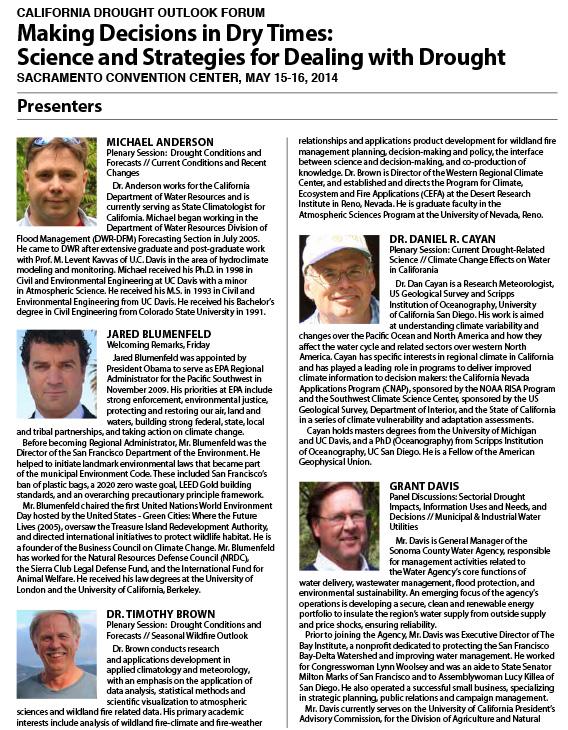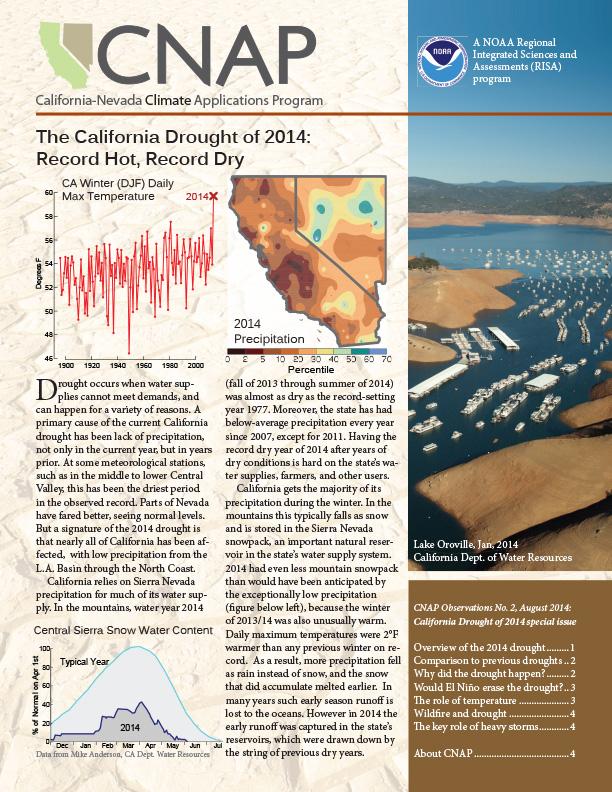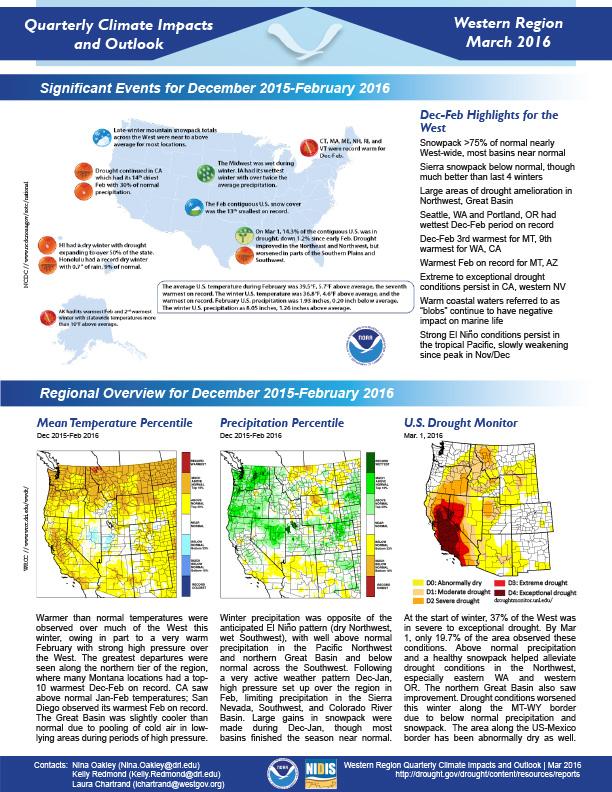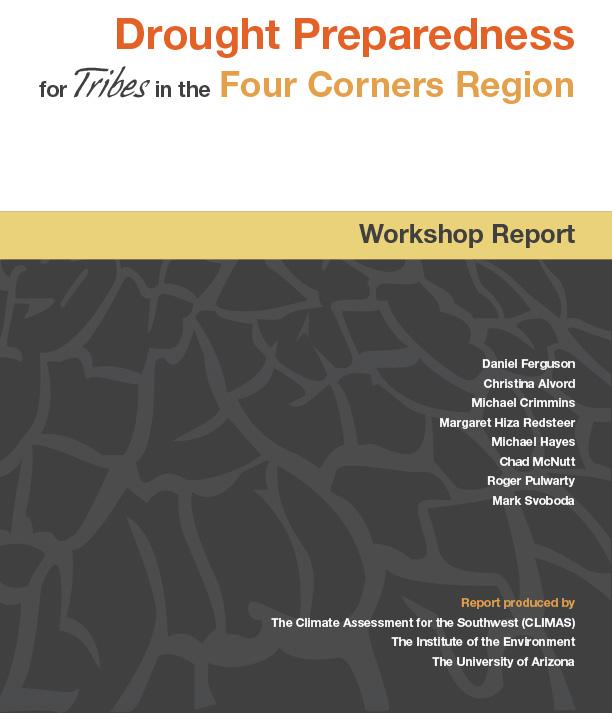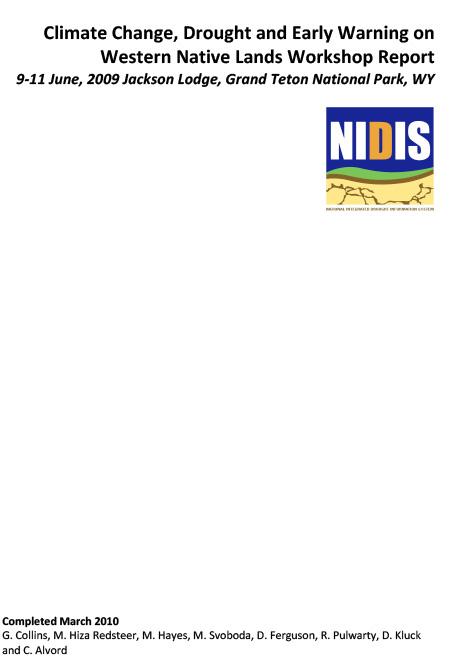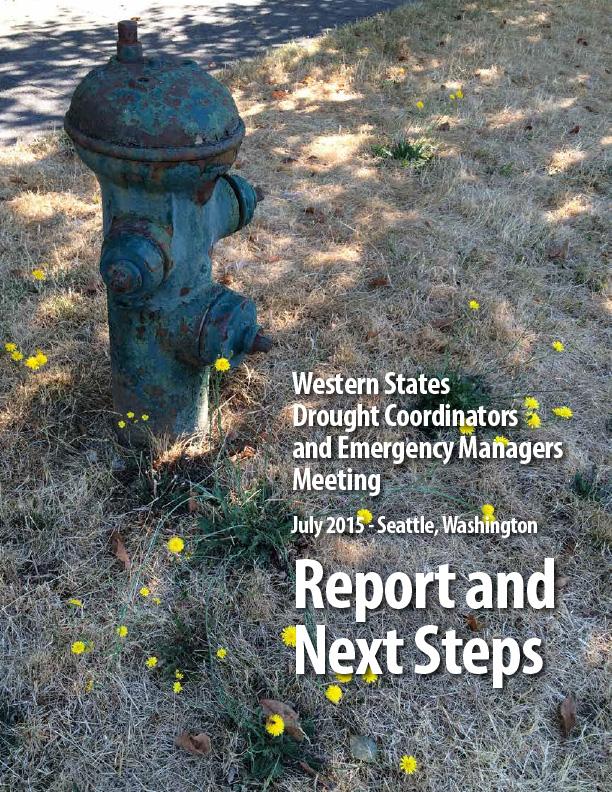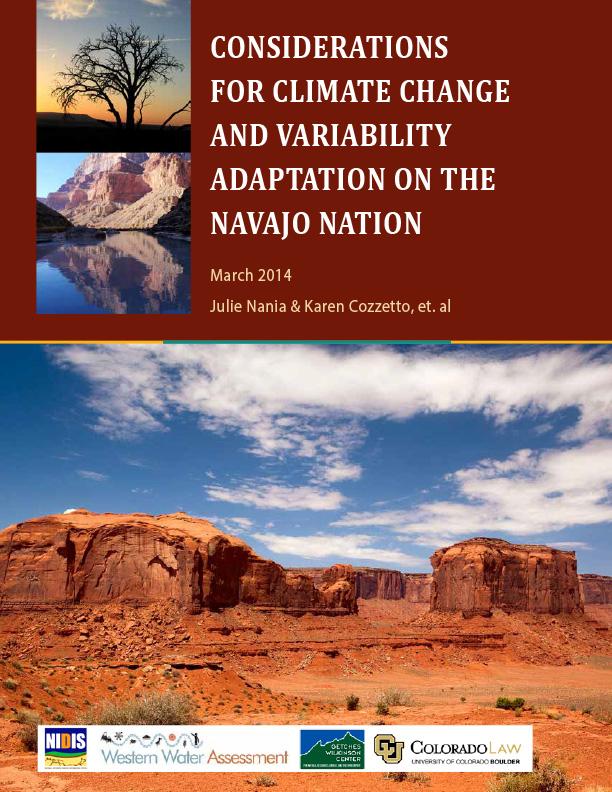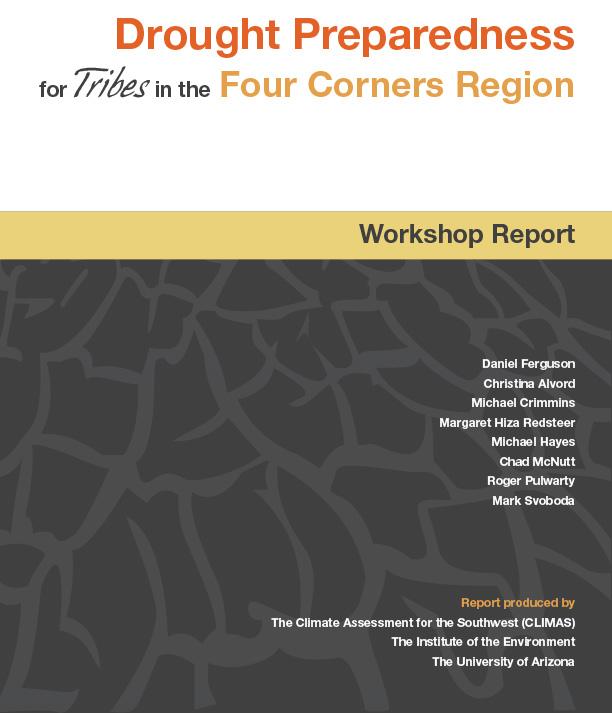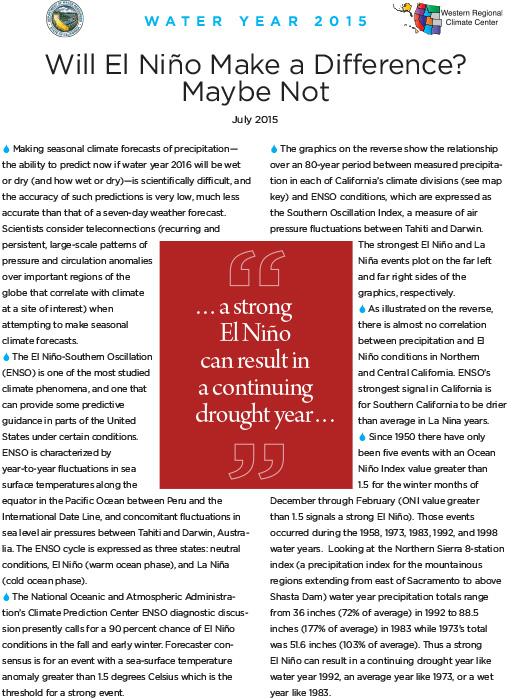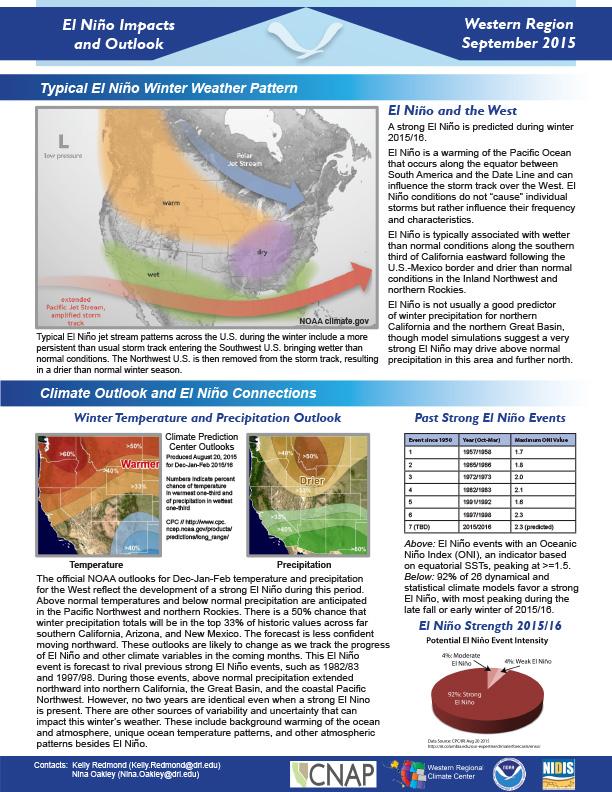Capsule bios for presenters at drought forum in Sacramento, May 15-16, 2014.
CNAP newsletter summarizes 2014 drought in California.
Quarterly Climate Impacts and Outlook for the Western Region for December 2015 and January – February 2016.
The National Integrated Drought Information System (NIDIS), in conjunction with the U.S. Geological Survey (USGS), the National Drought Mitigation Center (NDMC), and the Climate Assessment for the Southwest (CLIMAS), hosted a workshop at the USGS Flagstaff Science Center in Flagstaff, Arizona, on April 8-9, 2010, to begin the process of developing a drought early warning system for the Four Corners region of the U.S. Southwest.
The National Integrated Drought Information System (NIDIS) convened a workshop in Grand Teton National Park, June 9-11, 2009, to initiate a long‐term commitment to providing tribes with the drought information and resources needed to better monitor and respond to inter‐annual drought conditions and long‐term climate changes. These efforts by NIDIS are grounded in the commitment to help facilitate and establish long‐term partnerships between tribal constituents and federal agencies, universities, and other entities in order to meet the federal trust responsibility.
Report from first-ever meeting of state drought coordinators, emergency managers and state climatologists from across the West on July 21-22, 2015, to discuss emerging best practices in forecasting, planning for and responding to drought, and recent lessons learned. Held in Seattle, WA, hosted by NOAA, NIDIS, National Drought Mitigation Center (NDMC) and the Western Governors’ Association (WGA). Representatives from 16 of the 19 states within WGA attended (AK, AZ, CA, CO, ID, KS, MT, NB, NV, NM, OK, OR, SD, TX, UT, WA, WY).
This report provides information to the Navajo Nation that has been deemed important for the future development of a climate change adaptation plan and is intended to be used by decision makers on the Nation.
Report on a workshop that took place April 8-9, 2010 in Flagstaff, Arizona between officials from the Hualapai, Zuni, Hopi, Navajo, Tohono O’odham and Southern Ute Tribes, together with NIDIS, NOAA, Climate Assessment for the Southwest (CLIMAS), Northern Arizona University, University of Arizona, Western Water Assessment, Desert Research Institute, Indigenous Waters Network, Flagstaff Science Center, USGS, National Drought Mitigation Center, Bureau of Reclamation and the Western Regional Climate Center.
How different El Niños have affected California at different times, and their relative strengths. A strong El Niño can result in a continuing drought year like water year 1992, an average year like 1973, or a wet year like 1983, so there is not a certain cause and effect relationship between precipitation and El Niño.
El Niño weather pattern, climate outlook, potential impact on California drought, history of past El Niños.


